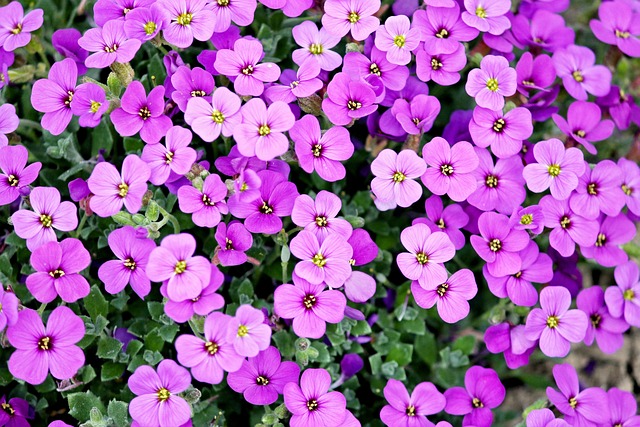Seasonal garden maintenance ensures a thriving garden year-round. Spring prep includes cleaning, pruning, and fertilizing to establish robust roots. Summer requires diligent watering and adaptive fertilizing for healthy growth. Fall cleanup involves removing spent flowers and preparing beds with mulch for winter protection. Pruning, adjusted fertilizing, and consistent mulching throughout the seasons safeguard plants from extreme temperatures and pests, fostering a vibrant garden from spring to fall.
In the heart of summer, keeping your plants hydrated and thriving requires strategic care. This comprehensive guide delves into the essential aspects of seasonal garden maintenance, focusing on spring preparation, summer watering mastery, and fall cleanup strategies. Learn how to navigate the changing seasons with expert tips on pruning, fertilizing, pest control, and mulching. By implementing these practices, your garden will flourish through the warm months and be protected for winter.
- Spring Garden Preparation: Laying the Foundation for Summer Thrive
- Summer Watering Tips: Navigating Seasonal Changes for Healthy Plants
- Fall Cleanup Strategies: Preparing Your Garden for Winter Protection
- Seasonal Plant Care: Pruning, Fertilizing, Pest Control & Mulching Guide
Spring Garden Preparation: Laying the Foundation for Summer Thrive

Spring is the perfect time to prepare your garden for a vibrant and healthy summer. Seasonal garden maintenance starts with assessing and tending to your plants’ needs as the weather warms up. One of the most crucial aspects is spring garden preparation, which involves laying the foundation for your plants’ overall well-being throughout the season. This includes ensuring proper soil conditioning, as nutrients can be leached out over winter, so fertilizing schedules should be adjusted accordingly.
Pruning seasonal plants is also essential to encourage new growth and maintain their shape. In terms of summer watering tips, remember that frequent, deep waterings are better than shallow, regular ones. Fall cleanup strategies should begin to take effect as you remove dead plant matter, ensuring a neat and healthy garden for the upcoming winter. Protecting your garden over winter involves taking measures like covering sensitive plants and using mulching techniques to retain soil moisture and insulate roots from extreme temperatures.
Summer Watering Tips: Navigating Seasonal Changes for Healthy Plants

Summer brings about unique challenges for keeping our gardens vibrant and healthy. As temperatures rise, so does the need for diligent watering and attentive care. Effective summer watering tips involve understanding seasonal changes and adapting your routine accordingly. In terms of spring garden preparation, ensure you’ve established a robust root system before the heat sets in; this foundation will be crucial for withstanding the upcoming months.
Navigating seasonal shifts means recognizing when to adjust your fertilizing schedules—a key component of seasonal garden maintenance. During summer, consider using well-balanced fertilizers to support rapid growth. Pruning seasonal plants is another vital task; remove any dead or yellowing foliage promptly to prevent pest attraction and encourage robust new growth. Fall cleanup strategies should begin before the first frost, focusing on removing spent flowers and preparing beds for winter protection. Mulching becomes essential during these months, not only for insulation but also for retaining soil moisture throughout the dry spells that often occur in winter.
Fall Cleanup Strategies: Preparing Your Garden for Winter Protection

As summer transitions into fall, it’s crucial to implement effective fall cleanup strategies to prepare your garden for winter protection. This involves several key steps, including pruning seasonal plants and removing any dead or diseased foliage. By doing so, you prevent pest and disease issues while promoting healthy growth come spring. Additionally, adjusting fertilizing schedules according to the season ensures that plants receive the necessary nutrients for optimal health.
Mulching is another essential practice during this time. A layer of organic mulch can protect plant roots from fluctuating temperatures and retain moisture, which is particularly beneficial during drier fall months. This simple step can significantly enhance your garden’s resilience and ensure a vibrant start to the next growing season. Remember, seasonal garden maintenance is key to keeping plants thriving year-round, so consider these tips as part of your comprehensive summer care routine.
Seasonal Plant Care: Pruning, Fertilizing, Pest Control & Mulching Guide

As the seasons change, so do the needs of your garden. Seasonal garden maintenance is key to keeping plants healthy and vibrant year-round. In spring, prepare your garden for the growing season by cleaning up debris from winter, pruning seasonal plants to encourage new growth, and applying fertilizer to give your plants a boost after the colder months.
During summer, proper watering tips become essential. Ensure deep watering less frequently to promote strong root systems. Fall brings opportunities for cleanup strategies, such as removing dead foliage and preparing beds for winter protection. In terms of pest control, monitor your garden throughout the year, addressing issues promptly with seasonal-specific methods. Mulching is a vital practice, offering insulation in winter, suppressing weeds in spring and summer, and maintaining moisture during hot months.
Maintaining a vibrant and healthy garden throughout the summer requires thoughtful preparation in spring and strategic care during fall. By implementing effective watering practices, such as deep and infrequent watering to encourage root growth, and adopting a proactive approach to pruning, fertilizing, pest control, and mulching according to seasonal needs, gardeners can ensure their plants thrive through all four seasons. Seasonal garden maintenance is key to fostering a lush and resilient outdoor space that provides beauty and enjoyment year-round.
